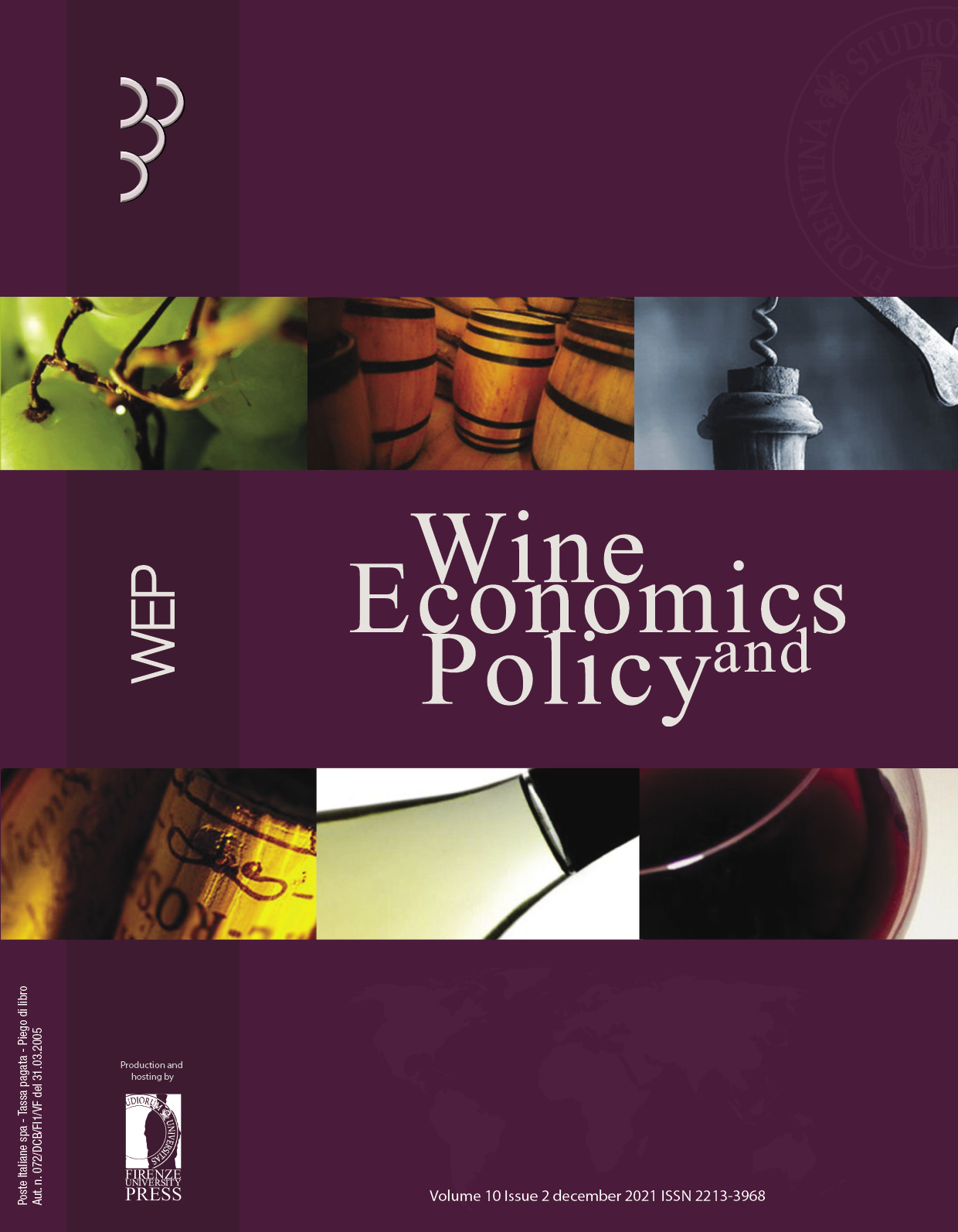Published 2021-11-08
Keywords
- Liv-ex 50,
- EMH,
- adaptive markets,
- VR tests
How to Cite
Abstract
We test the nature of weak form informational efficiency present in the wine market using daily return of LIV-EX 50 index from 1/1/2010 to 12/6/2020. First, we employ a number of statistical tests including variance ratio tests, tests for linear and non-linear dependence and Hurst coefficient. The tests are applied on the full dataset and on four non overlapping sub-samples of equal length. The variance ratio tests provide a mixed regarding informational efficiency. Evidence of non-linear dependence in the return series was found. The Hurst coefficient values confirm the presence of long run persistence in the wine market. Based on the mixed evidence, we test the possibility of adaptive nature of the wine market. We employ the newly proposed Adaptive Index (AI) to quantify the degree of information inefficiency in the wine market at any instance. Our results confirm that wine market is adaptive and periodically shifts between states of efficiency and inefficiency. The wine market is found to be relatively free from the Covid-19 induced shock and the safe haven property of wine is thus confirmed. Finally, impact of various macroeconomic and financial events on wine market efficiency is identified by using AI.

